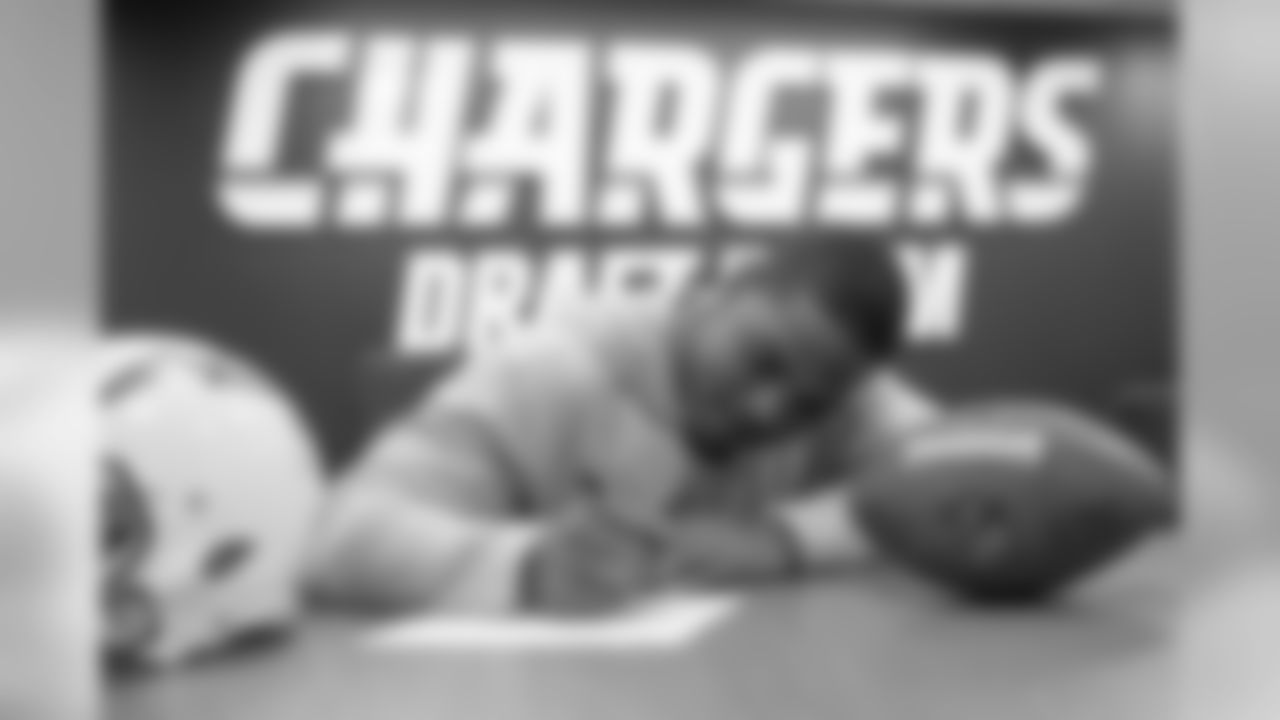The grind never stops for a general manager of an NFL team. From the Senior Bowl, to the Combine and now free agency, it's been a whirlwind two months – and we haven't even gotten to the draft.
Even though we're still roughly 24 hours away from the start of free agency, the "legal tampering" period opened at 9:00am PT on Monday where clubs can begin talking with players set to become unrestricted free agents as of 1:00pm PT on Wednesday.
With things about to get even wilder than they already are, Chargers General Manager Tom Telesco **called into The Doug Gottlieb Show on Fox Sports Radio** to have listeners step into his shoes and dissect what these days are like from his point of view.
"We're Not Anti-Free Agency"
Look, the Chargers may not always make that splashy free agent signing once the clock strikes 1:00pm PT at the start of the new league year, but it's important to remember the period is ongoing. Players they have signed days or even weeks after the period opens have been difference makers for the team. In fact, they've had a player they've signed in free agency make the Pro Bowl the previous three seasons, further proving his team's philosophy to attacking this period has worked for them:
"(You see high numbers on day one because) usually need and leverage is what it comes down to. Once a player is an unrestricted free agent, he can sign with anybody. If there's more than one team competing for that player, the numbers are going to go up. Every year we see with free agency this time of year, it's heavily covered (with) the magnifying glass on all these signings. We're not anti-free agency, we're more quality than quantity when it comes to free agency. We've signed Mike Pouncey, Russell Okung, Casey Hayward, (Brandon) Mebane, Danny Woodhead and some others. But I think you've got to be very careful in free agency; what you want to pay for in future performance not past production. Those are discussions you have."
Player Success Rates Predicated on Scheme Not Name
"Who won free agency?" Chances are you'll see pundits giving grades or "awards" to teams they feel bolstered their groups best once this period of time cools down. But as we learn year after year, just because a team may have won the offseason in March doesn't always mean they're hoisting the Lombardi in February. So why is the hit rate so low for the success of players going to new teams in free agency? Telesco believes it's based on scheme. As he said, baseball players can swap teams and do fine in a new uniform. But in football, each team's scheme is different, so there are many parts to figuring out how best a player will fit into their puzzle:
"Players have to fit in the right situations. Then, it's not for every UFA out there, but there's (usually) a reason why they're out there and the team didn't re-sign them. The hit rate is not as high, but the hit rate isn't 100-percent in the draft either. You have to really go through and really put a critical eye on the players you're going to sign and make sure they fit in your locker room. Most of these players, the information we have on them is all from college. Once they sign with another team, you don't really know them as much as they grow through another team's roster. You have to make sure they fit with your team, fit in your team's locker room and your scheme, make sure they have a number of good years left as far as their production and performance is concerned."

No Softening the Hard Cap
Unlike the NBA, the NFL has a hard salary cap, meaning there is a maximum amount of money set for each team's player salaries, and teams cannot exceed this amount. This year's cap is set at $188.2 million – increasing from $177.2 million in 2018. So, from balancing current players' salaries on a roster to re-signing their own to potentially signing free agents, how does this affect a club's front office? As Telesco explains, it's a constantly fluid situation that he and his staff prepare for:
"Every dollar that a particular player doesn't get, that dollar doesn't go back in my pocket or our pocket. It's going to go to another player and that's how you have to build your football team. There's constantly moving parts. We have some of our own free agents we'd like to sign (and) we're in negotiations with them. We're also in negotiations with some players outside our football team and are trying to make everything work. You have to have different plans; A, B, and C of what may happen. But that's part of putting the team together. There's a lot of moving parts with the salary cap and it's a hard cap. You have to make tough decisions on players, and that's just the way that it goes."
Browse through the top photos of LB Denzel Perryman re-signing with the Chargers on a two-year contract.


























